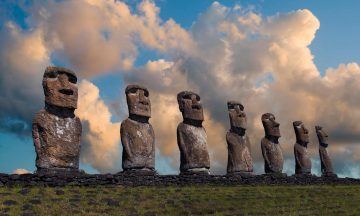Steven Poole in The Guardian:
 Like most big-idea books, this one begins by absurdly overstating the novelty of its argument. The author promises to reveal “a radical idea” that has been “erased from the annals of world history”. It is, even, “a new view of humankind”. Some measure of bathos is presumably intended when we learn that this radical new view is that “most people, deep down, are pretty decent”. But there appears to be no authorial shame over the laughably bogus claim that this idea has been “erased” from history, presumably by a dark centuries-long conspiracy of secretive misanthropes, to some bafflingly obscure end. Not yet erased from the annals of history, for example, is the 18th-century philosopher Jean-Jacques Rousseau, on whom the author regularly calls for his view that humans are naturally nice, and it is the institutions of civilisation that have corrupted us. Bregman contrasts this with what he calls, following the biologist Frans de Waal, “veneer theory”: the view (attributed to Hobbes among others) that civilisation is a thin skin of decency barely concealing the savage ape underneath.
Like most big-idea books, this one begins by absurdly overstating the novelty of its argument. The author promises to reveal “a radical idea” that has been “erased from the annals of world history”. It is, even, “a new view of humankind”. Some measure of bathos is presumably intended when we learn that this radical new view is that “most people, deep down, are pretty decent”. But there appears to be no authorial shame over the laughably bogus claim that this idea has been “erased” from history, presumably by a dark centuries-long conspiracy of secretive misanthropes, to some bafflingly obscure end. Not yet erased from the annals of history, for example, is the 18th-century philosopher Jean-Jacques Rousseau, on whom the author regularly calls for his view that humans are naturally nice, and it is the institutions of civilisation that have corrupted us. Bregman contrasts this with what he calls, following the biologist Frans de Waal, “veneer theory”: the view (attributed to Hobbes among others) that civilisation is a thin skin of decency barely concealing the savage ape underneath.
You might suspect that there is something to both these views simultaneously, but Humankind is a polemic in the high Gladwellian style and so aims to be a simple lesson overturning our allegedly preconceived ideas, with the help of carefully selected study citations and pseudo-novelistic scenes from the blitz and other teachable stories. The “veneer” theory, Bregman insists, is totally wrong. What is his evidence? Infants and toddlers, studies suggest, have an innate bias towards fairness and cooperation. When some Tongan children were shipwrecked on a Pacific island for over a year, they cooperated generously rather than re-enacting Lord of the Flies. In the first world war, German and British soldiers played football on Christmas Day. (Rather courageously, the author chooses this overfamiliar fable as his sentimental endpiece.)
More here.
